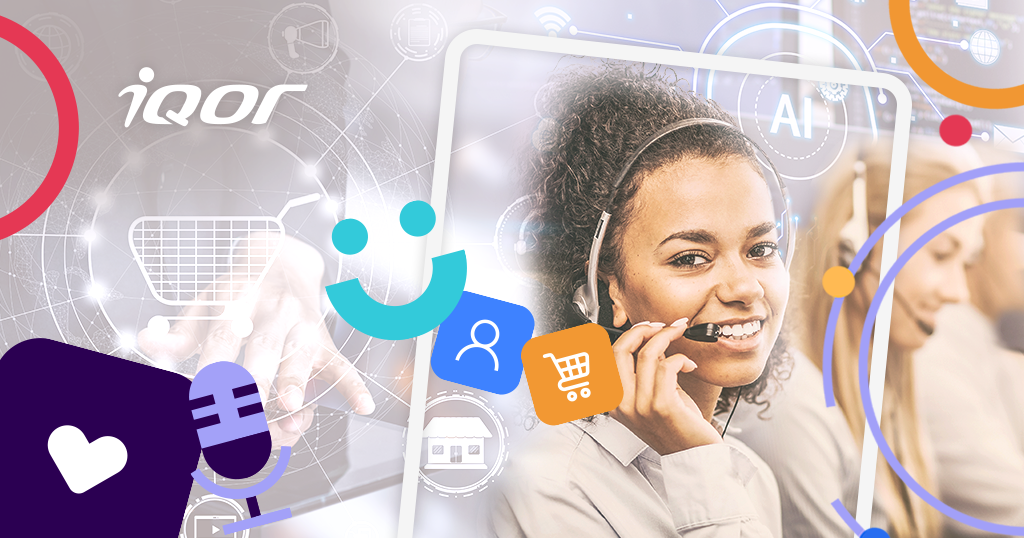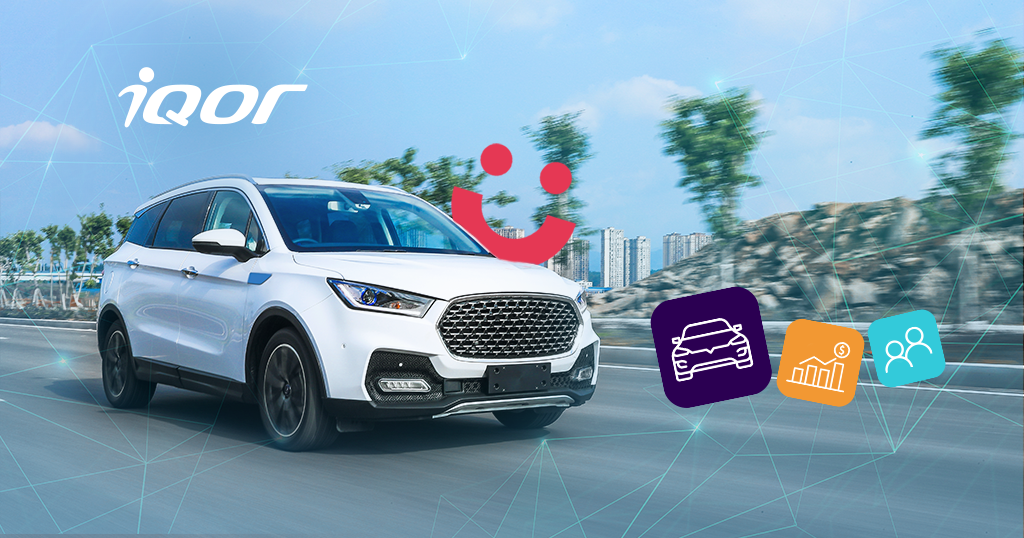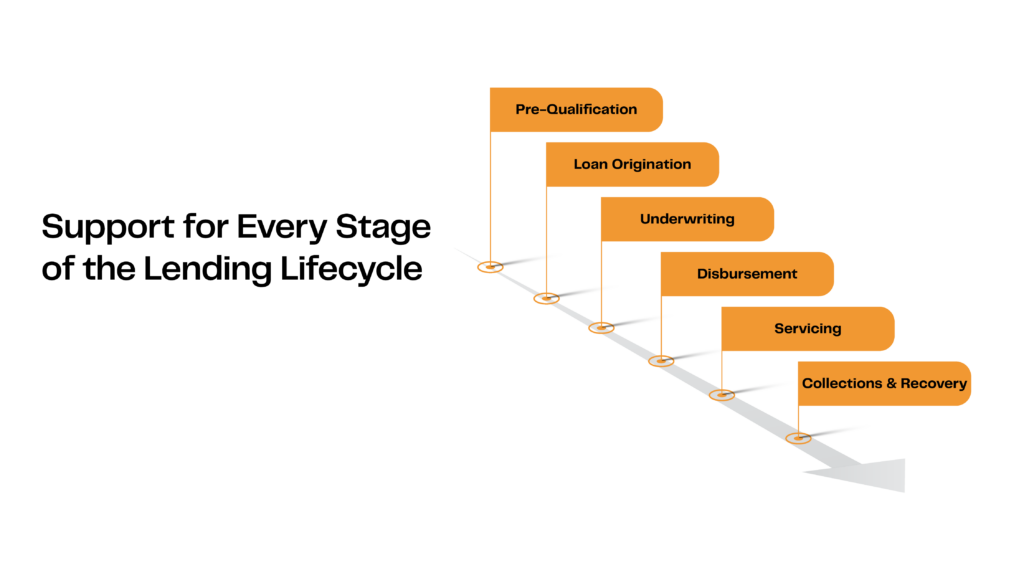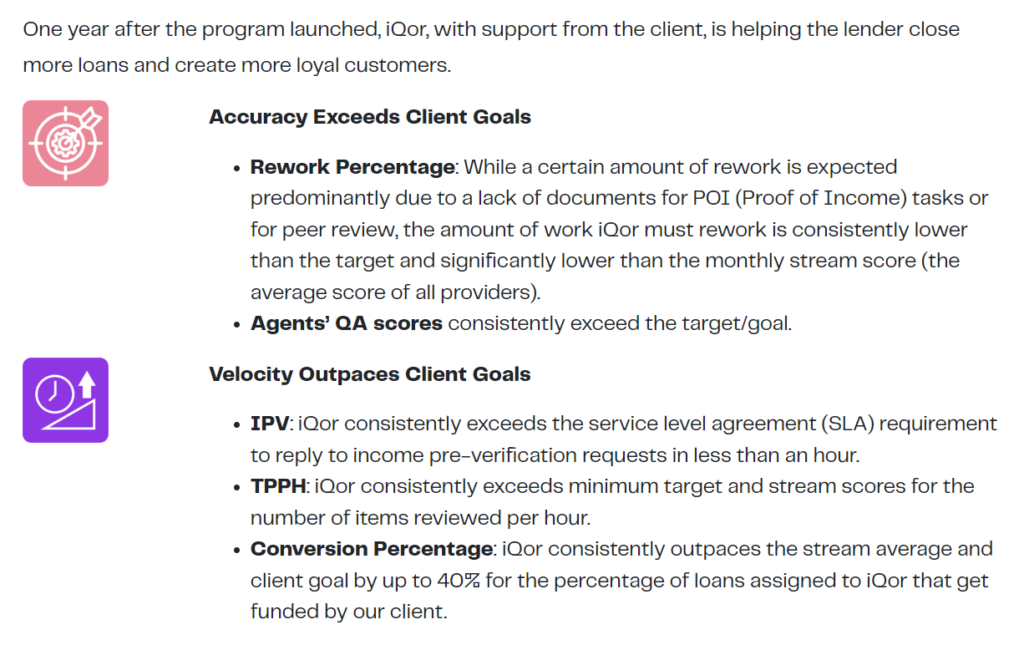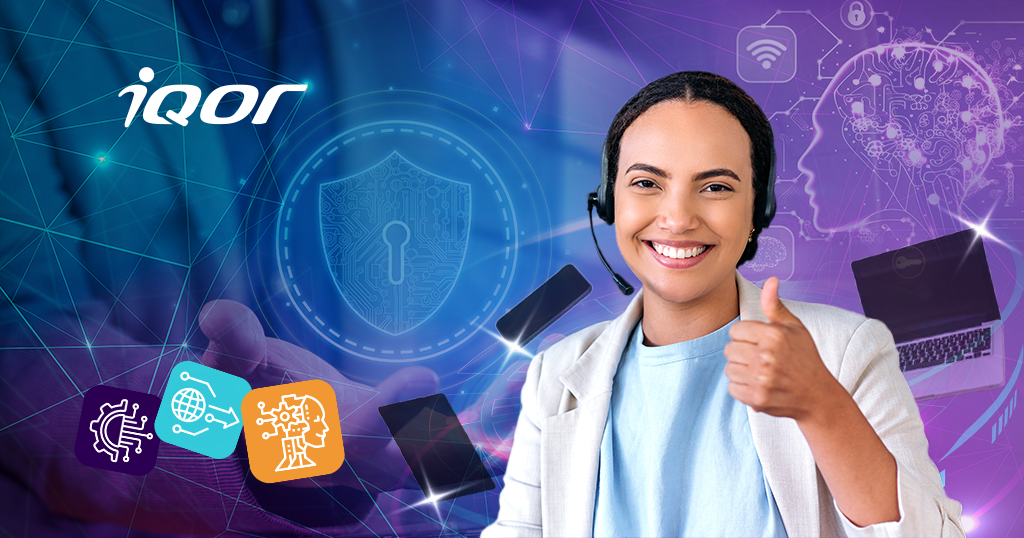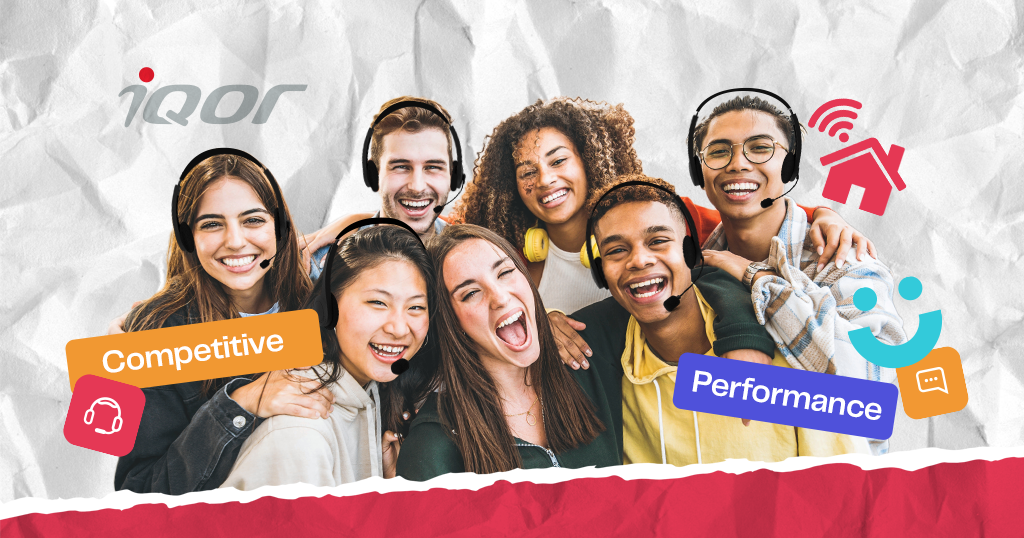CX Experts Provide Insights and Strategies
This blog is a collection of insights on artificial intelligence (AI) in customer experience (CX) strategies from an elite group of CX strategists and consultants. Collectively, they explore a future where AI is not just an operational tool but a transformative element for exceptional customer and employee experiences. Their reflections consider AI’s use, limitations, and methods for maximizing its potential in the ongoing delivery of irresistible customer experience across all industries.
Following are the topics addressed by the CX experts. In the next section, their insights are provided in alphabetical order by first name.
Trends and Predictions
The evolution of AI is set to deliver immersive, personalized experiences through a blend of physical and digital engagements with advancements in hyper personalization, multi-channel engagement, and augmented reality. AI’s role in enhancing self-service options and supporting customer service agents by offering accurate, customized interactions is increasingly significant.
Challenges and Solutions
Key challenges include skepticism towards AI, data integration, strategy development, and balancing automation with human empathy. Solutions highlight the importance of building trust, ensuring AI transparency, fostering collaboration, and focusing on strategic, ethical AI deployment.
Personalization and Ethics
Ethical considerations revolve around data privacy, consent, and customer control over data. Ethical AI use begins with prioritizing ethics over speed or market competitiveness, ensuring AI’s use gains customers’ trust.
Customer Engagement
AI transforms engagement through automated insights, personalized recommendations, and innovative content creation, elevating interaction and loyalty.
Data and Privacy
Addressing personalized experiences with data privacy involves securing customer consent, adhering to privacy laws, and practicing ethical AI use.
Emerging Technologies
Innovations in natural language processing, explainable AI, and reinforcement learning promise to improve transparency and customer interaction.
Employee Experience
AI improves employee experiences by automating routine tasks, providing insights, and supporting personalized training to maximize efficiency.
Future Skills
Essential skills in an AI-driven future include empathetic listening, creative problem-solving, and an understanding of AI technology and data analysis
Ethical AI and Trust
Trust necessitates ethical AI practices, transparency, customer data respect, and regular audits for bias and fairness.
AI Limitations
AI cannot currently replicate the nuanced human touch required in complex customer service scenarios. Strategies must include seamless AI-human interactions.
In an AI-enhanced future, businesses must navigate the complexities of technology integration with a focus on ethical practices, transparency, and the deployment of essential human skills. Success lies in balancing technological advancements with the irreplaceable value of human empathy and understanding, ensuring that AI serves as a complement rather than a replacement in CX.
“The organizations that are deploying AI effectively are using it not only to create smoother customer experiences but also to facilitate smoother employee experiences, making human agents more effective. Back-end AI deployment can give agents real-time, contextual information with a speed and accuracy never seen before, from natural-language queries to instant customer history summaries. As with anything, training will be essential to helping agents maximize these tools and use them effectively with customers in real time.
“The agent skills that will be essential in an AI-driven future are the human skills. Robots will be cheaper, faster, and more accurate; humans will add value by being more human and by having advanced skills in empathetic listening, compassionate communication, and creative problem-solving. The term ‘retail robot’ has been used for years as an insult, to describe script-reciting, unenthusiastic service employees. However, the agents who try, who care, and who can put a smile on another human’s face are the ones that will always be more valuable than a machine.
“In something as new and unexplored as AI, ethics tend to be in the eye of the beholder. However, as a first principle, I believe that companies can best use AI ethically by prioritizing ethics—putting them first, ahead of speed and ahead of being first to market. Based on how the AI gold rush is playing out across industries, it may be naive, but I think the ethical use of something as powerful as AI begins with focusing on what it should do, not just what it can do.”
“While a lot of conversations about AI in CX focus on mass personalization and automated support, a big win is on the horizon for organizational learning and knowledge management. When customers call contact centers for support, agents will have faster access to answers via intelligent intranets. When R&D professionals seek emerging—and even predictive—data on customer preferences and trends, AI can serve real-time information at their fingertips. Faster and more accurate intelligence will yield efficiencies for companies and should also yield more satisfying products and services for customers.
“AI and advanced computing will allow organizations to activate CRM programs with deeper relationships than ever before. Within—and beyond—a company’s customer journey, AI will enable new ways to learn about and connect with our customers. As with familiar examples like shopping cart recommendations and targeted Google ads, AI is offering ‘shortcuts’ from search and social media placements to check-out pages. Shopping and viewership data can also be aggregated to guide the design of new products that better meet customers’ wants and needs. Ethical and technical safeguards are needed to ensure customer data is secure from bad actors and to prevent vulnerable customers from being marketed dangerous or disturbing products.
“Evolutions in natural language processing are about to unlock a world of opportunity—literally and figuratively! On top of chatbots, voice agents, and the like developing real-time speech capabilities, we will also see (and hear) their ability to translate across languages. Companies with global growth strategies can use this trend to their advantage, accessing new markets and new customers through emerging communications technology. Even internally, the translation benefits of AI can help diverse workforces engage in trainings, access organizational knowledge, and collaborate internationally.”
Brian Wagner, CEO, Health Insights Consulting Group, Inc., and Board Member of Revinax
“One thing that stood out as a house of themes around challenges for integrating AI to improve the customer experience is building trust with those who will use and be affected by it. Without the rules of engagement and guard rails in place for the responsible use of AI, customers could be turned off and not believe in the value AI can bring to improve the customer experience. These ‘rules’ will be essential for the responsible and broad adoption of AI in the years to come. It is a continuing conversation, but the awareness of the need in and of itself is essential.”
Brittany Hodak, Customer Experience Speaker and Author of “Creating Superfans”
“Over the next few years, AI systems will become more adaptive and capable of continuous learning. We will experience more human-like interactions with chatbots and virtual assistants, significantly improving customer service. In addition, businesses will be able to analyze customer sentiment and predict customer needs and behaviors to help create even more personalized experiences and recommendations in dashboards readily accessible to employees across the organization. As AI continues to evolve, customer expectations are only going to increase. Speed and personalization will become even more important for all businesses.
“AI platforms require A LOT of data, so companies must ensure that they are capturing high-quality data to inform accurate AI predictions. Implementing an AI platform is not the end of the project, though. Companies will need to hire in-house experts or third-party vendors who specialize in data science and machine learning to constantly audit and update the systems. Lastly, aligning your team around the benefits of AI and establishing clear protocols will be a challenge. Employees may be worried that their jobs will be replaced with AI, while others will be reluctant to learn new technology. They must all realize AI is to help humans perform CX tasks, not replace humans.
“AI has allowed companies to create highly personalized experiences for customers. Platforms like Spotify and Netflix can make personalized suggestions based on our consumption history and rich customer data. Fashion and beauty brands like Warby Parker and Ulta use AR (augmented reality) to help customers try on products in the comfort of their own homes. Many of these features have enhanced the customer experience, but there are several ethical concerns businesses should be aware of. If AI algorithms are trained on biased information or models, personalized recommendations may reinforce existing stereotypes or inadvertently exclude certain groups. Moreover, customers should regularly be allowed to opt in or out of certain features and take control over their preferences.
“The use of AI has significantly improved customer engagement. Some of the most notable examples I’ve seen firsthand are Canva and Castmagic. These platforms offer new AI-driven features that help users write copy or headlines, design unique images, create music, generate scripts or episode summaries for podcasts, and much more. AI has made content creation significantly easier, faster, and more accessible than ever before.
“AI platforms must get customer consent for data collection and be transparent about data usage. Businesses will need to be up to date on privacy laws and regulations to protect customer information and maintain their trust. They must also acknowledge that there is no ‘one size fits all’ approach anymore. Some customers will appreciate the efficiencies AI will provide, while others will be skeptical about sharing information. Companies must make allowances for customers existing on both ends of the spectrum, in the same way that smart companies now allow customers to solve problems via a number of avenues.
“Explainable AI (XAI) will significantly improve customer experience. XAI provides insights into how AI models arrive at specific conclusions or predictions, increasing transparency and accountability. XAI will help companies use AI more effectively and will enhance customer understanding and trust.
“Customer service employees will be relying on AI-generated insights, so they need to be trained on the limitations of AI and when to use their human judgment to make decisions. For all employees (not just those using AI!), it’s important for them to know that while AI-generated scripts, prompts, or suggestions are helpful, they are not a replacement for a human operator.
“Customer experience professionals will need a foundational understanding of AI concepts, technologies, and applications. Since AI is data-driven, being able to understand certain metrics and derive insights from customer data will be crucial. Lastly, empathy is a non-negotiable in any customer experience role, but it’s especially important when AI is heavily involved.
“Due to the lack of transparency, privacy concerns, and the evolving nature of AI platforms, the use of AI can significantly erode customer trust. However, businesses can maintain their customer relationships while reaping the benefits of AI by putting a few ground rules in place.
- Always indicate when AI is being used exclusively in a customer interaction (e.g., chatbots).
- Regularly audit AI systems for potential bias.
- Ask customers for their feedback after AI interactions to help improve the technology. Explain how AI algorithms work and what will happen to customer data after the interaction.
“At the end of the day, AI cannot replicate the human touch. Companies will need to put processes in place to ensure that certain situations get directed to a real person instead of a chatbot, especially in areas or industries where empathy, understanding, and emotional connections are crucial. Another limitation will be the innate bias of the algorithms. Regular audits of AI systems can help ensure fairness and accountability.”
Dan Gingiss, Chief Experience Officer, The Experience MakerTM LLC
“The biggest challenge is resisting the urge to have AI do everything. The goal should not be to replace human interactions but rather to supplement them with AI. Yes, there are plenty of places where AI can make things easier for the customer, but also look for places where it can make things easier for your employees. That allows them to do what they do best—be human.
“Employees need the comfort of knowing that AI isn’t coming for their jobs. In fact, it’s there to help them do their jobs better. Regular AI training should be adopted so employees always feel up to date on one of the fastest-moving technologies we’ve ever seen.”
“From an average customer’s perspective, people are afraid of AI and the use of this new, mysterious technology. Importantly, employees are also uneasy with this new technology.
1. Find the champions. Find the individuals—no matter what level—that understand the benefits to the employees and the customers. Don’t look for the technical experts. Why? Remember, you are not trying to integrate AI technology but rather an improved experience or efficiency for the employee/customer. You’ll need to lead the integration with benefits.
2. Kill the term ‘AI.’ Technology drives the backend of the business–not the front end. Employees and customers don’t care about what version of the software runs the program they are using. They don’t care what makes things run. They care about the efficiency and reliability of the program.
3. Build can-do collaboration teams. In Phase I, you will likely find a few problems to solve or efficiencies to bring using AI technology. In Phase II, create cross-functional teams with both the technologists and the realists. Find ways to dream. What’s possible?”
Heather R Younger, Founder and CEO – Employee Fanatix, and International Keynote Speaker
“AI’s impact on the employee experience can be far reaching and positive. As we look at employee experience as a holistic approach to the employee’s journey, there are a myriad of touchpoints along the way. AI can not only ease the load for customer service employees through practical applications, but it can also improve their overall experience by providing more custom training and development offerings and delivery. Employee experience is driven by emotions; AI can boost most positive emotions by delivering what the customer service professionals need when they need it and leave a supportive impression.”
“A big challenge I continue to see is simply not having a defined strategy for customer experience efforts. Many organizations are still moving from tactic to tactic or starting with the tool (let’s use AI) instead of determining what success means and how to deliver the best possible experience for customers. To deliver results, leaders need to make sure efforts are aligned with overall outcomes—that requires strategic thinking, proper prioritization, and making a business case for these investments.
“Customers appreciate personalized experiences, and AI can provide those in a more predictive way for individual customers at scale. Customers are becoming savvier about how their personal data is involved, and they deserve more transparency. I see a future of easier, more transparent data control options for customers. And if a customer decides to change something—like masking their email or something small—AI will be able to make that change across the organization instantly. Transparency like that will also continue to build trust between the customer and the brand.
“AI will allow customer service agents and others who interact directly with customers to focus on the nuanced, more emotional situations that require human empathy and compassion. AI will keep the more mundane and repetitive tasks and questions from taking their time and empathy, and customers will be happy to get answers when they need them and personalized from their needs. Employees will have access to intelligent search and other features to get to the right information at the right moment. So, skills around how to prompt the right response quickly and how to move from ‘reading a script’ to engaging in authentic conversations with new information will be important. With this freedom from routine tasks, employees may have time to innovate around the customer journey as well.”
Jermaine Edwards, Founder/CEO of Customer Advantage Systems and the Irreplaceable Advisory Group
“I believe use cases will come from the gaming world. I’m seeing more and more experimentation in immersive technology, and it is working. Gartner described it as moving into a phygital world. The blend of physical and digital engagement to enhance personalized experiences. We talk about journey maps, but we’re now building ‘experience structures.’ These are designed to optimize interactions and improve behavioral outcomes. An example of this comes from a company called Unreal Engine. In it AI is used as a means for users to guide their own story. They can win physical prizes and create digital currency.”
- “Hyper Personalization: I expect an even greater ability to deliver hyper-personalized experiences, with AI becoming more sophisticated in understanding customer preferences.
- Voice and Conversational Interfaces: The rise of voice search and conversational AI will likely prompt more businesses to adopt voice-enabled customer service.
- Augmented Reality (AR) Experiences: AR is set to enhance online shopping, enabling customers to visualize products in their environments.
- Emphasis on Customer Privacy: With increasing data use, more importance will be placed on protecting customer privacy and data security.
- Growth in Customer Self-Service Options: More customers will prefer self-service options, leading to increased self-help tools and resources. But don’t forget to have well-trained team members ready to serve when technology fails or customers ‘opt human.’
“Transformative customer experience organizations will need to be led by people who invest in their culture and people, not just their IT systems. For example, leaders must provide ongoing training for employees on how to use technology tools effectively and must guide them on how to provide personalized service wherever possible. They also must work with subject matter experts and business partners to ensure seamless integration of human service and AI tools. This means providing a consistent experience across all channels, whether customers interact with a chatbot, speak with a human representative, or send an email.
“AI allows business leaders to provide service 24/7 and customize products and services based on the behavioral preferences of consumers. To achieve those benefits, leaders face many ethical risks related to data collection, customer consent, data security, and discrimination. Here’s my quick take on these challenges.
- Consent and Data Collection: AI requires access to copious quantities of personal data. The acquisition, storage, and analysis often occur without consumers’ explicit and complete consent. This lack of transparency is an ethical concern.
- Data Security: Data breaches are a substantial concern because of the volume of personal data being collected and stored. This is especially problematic, given the rise in cyberattacks that have compromised sensitive information.
- Discrimination: AI systems can form biases during training, leading to discriminatory recommendations and services.
“I work with retail and hospitality clients who effectively analyze customer sentiment in online feedback, reviews, and social media posts. AI-aided insights from this ‘social listening’ allow my clients to quickly address emerging issues, improve products, and pinpoint marketing strategies. Similarly, I have e-commerce clients who use AI to analyze a customer’s behavior, preferences, and browsing/purchase history to recommend products optimized for that customer. This level of personalization elevates the customer’s experience and dramatically increases customer engagement, sales, and repeat business.
“‘The train has left the station.’ The use of AI will only increase—hopefully at a pace our security and ethical oversight can manage. I liken it to nuclear technology, which can be used for noble or pernicious ends. Alternatively, we can think of the challenge as needing to ‘build a parachute after jumping off a bridge.’ Gravity (or, in this case, the benefits of AI) will hurt us—our challenge is to secure a safe landing for all stakeholders.
“Trust is the currency of relationships. Playing fast and loose with customer data, violating their privacy, being nontransparent, and using their information only for the gain of the business will cause businesses to implode. It has done it long before the rise of AI. This technology only amplifies the potential risk to both the customer and the business. Of course, the wise use of AI will enhance intimacy, trust, and the enduring nature of customer relationships.”
“1. Al will create seamless experiences for customers reaching out across multiple channels. Customers want to be able to reach out to companies over social channels like Instagram, follow up by email or phone, and want and expect companies to remember their interactions and respond with a strong memory. Companies can no longer have a single channel strategy and architecture, or they risk leaking customers and customer sales.
2. There will be a widening of the gap between leaders and laggards in customer experience. Al has the potential to revolutionize businesses’ ability to deliver personalized customer experiences. Businesses that harness that power will leapfrog businesses that do not make investments in Al. The laggards, who are already playing catch up, will have even more ground to cover.
3. There will be a doubling down on the uniquely human values, such as empathy, which are necessary to deliver great customer experiences. Al will improve consistency, multitasking, and processing speed of data without losing effectiveness or efficiency, but only humans can understand and empathize with the emotions of customers. Al can only treat customers as data points, which will result in ‘me too’ and lackluster experiences if companies are not careful. Only humans can take a deep interest and involvement in the details of customers’ lives as people, not as data points. That’s why we call it empathy. The closer you get to customers’ lives, to their problems and frustrations, the better customer experience leaders will be at creating new value for them.
- “Safety: It probably goes without saying that the safety debate is the biggest question around Al. There is a lot of activity from governments and regulators, but, so far, there has not been much progress towards global governance and standards.
- Unraveling Real from Fake: Identifying what are fake experiences from what are real experiences will be harder to solve. Will fake experiences feed Al models and expand the pool of customer experience data? We will all need to be vigilant.
- Evaluating Utility of Models: Subject matter expertise transforms how you use AI. SMEs can ask better questions and evaluate answers. If CX leaders rely on emerging Al tools without evaluating the utility of methods, tools, and products with SMEs and diverse stakeholders, they will increase the potential for bias. Al is evolving so quickly and making sense of the landscape of Al tools, and choosing the right one is key. The utility of Al tools will be determined in large part by SMEs.
“Al will get businesses closer to realizing what Joe Pine described in 1993 as ‘mass customization.’ The theory of mass customization advocates for the integration of flexibility and personalization within scaled systems or experiences, allowing companies to offer products and services customized to individual preferences without forsaking efficiency or significantly increasing costs. This ability to deliver unique value to each customer while maintaining economies of scale has been somewhat elusive over the last 30 years, but Al will get us closer to this vision.
The ethical considerations are the same ethical considerations we hope all businesses are aspiring to honor in delivering customer experiences.
1. Prioritize the safety and needs of customers.
2. Be honest, truthful, and transparent in all communication.
3. Value diverse customers and their unique needs and wants.
4. Protect the privacy and safety of customer data. I think the one unique ethical consideration in an Al world is to consider the long-term social impact of using Al and to commit to evolving and learning forward for the benefit of humanity.
“There are so many exciting ways in which Al is transforming customer engagement.
1. New Product Offerings: The Al-powered robotic restaurants and bars like Spyce, PizzaBot, and Bionic Bar are really interesting.
2. Transforming Patient Outcomes: Al-powered medicine has the potential to transform whole populations by rapidly diagnosing diseases at mass scale and drug discovery. Early results in Al-powered mammography, sickle cell diagnosis, and molecular biology are very exciting.
3. Back Office Work Transformation: The ability to do code generation; create images; do speech synthesis; create video and 3D models; and use high-fidelity sketching, writing assistants, and text generation speed up back office work, which accelerates delivering better customer experiences.
4. Al-Powered Applications: The ability to do copywriting + art generation, social media design, media/advertising agency automation, and voice dubbing for both entertainment and educational applications is very exciting.
5. Novel Tools:
- ChatGPT is the king of Al tools designed to generate human-like text responses in a conversational manner.
- DALL-E can generate a wide range of creative visuals for campaigns, social media content, or branding materials.
- Perplexity is an interesting tool that shows promise in accelerating domain knowledge and research and can accelerate contextual awareness.
- Code Interpreter can quickly analyze and aggregate data that could help a data scientist quickly arrive at preliminary insights.
- Anthropic’s Claude is an Al assistant that is good for tasks such as complex reasoning, creativity, coding, and detailed content creation. I have seen it used for evaluating ideas, devising scoring systems, and assessing viability and feasibility on new offerings that lead to more compelling features.
- GitHub CoPilot acts as an intelligent assistant for software developers, offering suggestions for whole lines of code or entire functions as they type.
“Leading with an ethical stance of prioritizing data privacy, customer consent, and security; abiding by regulations; and ensuring the right humans are overseeing the systems will go a long way towards striking the right balance.
“1. Reinforcement learning from human feedback (RLHF) is helping make models safer and more helpful for users. It can be used to fine-tune Al models like chatbots or virtual assistants to make interactions more personalized and relevant. It can improve the quality of responses by learning nuances of human language, and it can better understand and respond to the emotional tone of customer inquiries, which makes customer experience interactions more empathetic and contextually sensitive.
2. Chain-of-thought technology can make customer experience interactions more transparent, intuitive, and effective. Leveraging chain-of-thought tech has the potential to break down complex customer inquiries into manageable steps that are more accurate, which is great for technical support operations. It also can make customer interactions more personalized, which makes experiences more trustworthy, building customer confidence. It also has the potential to reduce the frustration with automated services, making the experience feel more human-like.
“I think the skills that will be important for CX professionals in an Al-driven future are some of the same skills that are critical today.
- Opportunity Seeking Skills: The ability to see opportunity, challenge conventional wisdom, explore non-traditional ideas, remain open to redefining the problem trying to be solved, and then search broadly for areas of opportunity—all before deciding on a particular solution will be critical in an Al world.
- Relationship Management Skills: These are no longer soft skills. The ability to listen deeply, explore, and leverage multiple viewpoints and be comfortable working across differences is crucial. Success in a complex Al world is about making differences work for us rather than against us. Relationship management skills have always been downplayed as soft skills, but they will be mandatory in the customer experience world.
- Experimentation Skills: The ability to treat ideas as hypotheses to be tested, to identify the data needed to provide an evidence base, and to design and execute rigorous experiments is essential to managing Al risk rather than merely avoiding it.
- Reflection Skills: The ability to be self and situationally aware, to be able to explain to others the ‘why’ behind your reasoning, to be able to ask good questions, and to drill down on critical issues will be more important than ever in an Al future. This is the ability to do both perspective ‘taking’ and perspective ‘making.’”
Matt Lyles, Chief Experience Officer, Brand Builders Group
“AI is not a supervillain here to steal everyone’s jobs. It’s more like a sidekick. Just like Robin took on lower-level thugs to free Batman up for the bigger fights, AI frees your customer service agents up to tackle the big bads of customer challenges. So, your training and development should center on turning agents into AI whisperers, mastering the art of collaboration between man and machine. Focusing your AI investment into simplifying and streamlining the employee experience will allow your people to build relationships with customers where and when it matters most.
“AI’s biggest limitation is that it’s simply not human. Technology’s ability to recognize another person’s intent and express empathy is still limited. In the more nuanced and complex customer service challenges, customers will be looking for real human connection and insight, not canned responses and answers from chatbots that don’t accurately solve their problems. But a combination of AI and human customer service agent interaction can deliver an experience with the speed of technology and the empathy of a real person. Then seamless handoffs between AI and humans ensure customers feel like they’re getting the best of both worlds.”
“AI will make it affordable for all industries and market segments to outsource CX without suffering any loss in customer service quality. In other words, I predict (and hope) that the CX market will undergo rapid growth in the next decade.
“Level 1 support is becoming fully automated. Users are more likely to self-service than to ask for help from a human AI agent.
“Permit engineering and the ability to multitask will become highly sought after.”
“The primary challenge with using AI is getting access to data to allow the AI to provide relevant information to customers for self-service or to associates and leaders to enable them to do their jobs. Limiting AI to only having access to a single system or data source will not allow AI to fulfill its potential. For AI to work, it needs access to all of the data within a contact center environment.
“One of the primary benefits of AI is to augment and support our employee population. As AI/automation removes easy contacts from customer service roles, it just makes the job of customer service more complex for the associates and leaders. The customer interactions now will all be more complex and difficult, which means how we train and develop frontline associates, coaches, and leaders has to be reimagined. That is where AI can support training, onboarding, and driving speed to proficiency for new hires. AI can support connecting data and easy access to information and answers during conversations. AI can definitely also assist the more complex role for coaches and leaders who have to review all the data, reports, and analytics to determine how and what to coach to develop associates.”
Shep Hyken, Chief Amazement Officer, Shepard Presentations
“AI will improve self-service beyond anything we’ve seen up until now. In addition, it will support customer support agents by providing accurate answers to customers’ questions, information about the customer’s history with the company, and more. There will be a blend of digital automated support and human-to-human interaction. The companies that can find the balance will succeed with stellar ratings from their customers.
“While many companies are focused on using AI to support the customer’s self-service experience, companies are starting to recognize the value of creating a similar experience for customer support agents. In addition to feeding employees information about the questions and problems customers call about, AI can/will create in-the-moment/real-time coaching, giving agents opportunities to not only support their customers but to do so with empathy and understanding. In addition, AI will allow companies to save money on traditional training, by providing some (not all) technical and product information to agents at the time they need it. All of this will create a better employee experience, empowering them to create a better customer experience.
“Nobody knows or can predict the limitations AI presents in enhancing the customer experience. In 10 years, we’ll look back and think what we’re doing today is archaic. However, let’s address current-day limitations. Presently, some companies believe AI can create a self-service support system that does it all, eliminating live customer support.
Our CX research asked more than 1,000 consumers, ‘Do you use self-service tools before contacting live customer support?’ 70% said ‘Yes,’ but that doesn’t mean they are satisfied with the results. In a follow-up question, we asked, ‘Do you think self-service can deliver as good of a customer experience as humans?’ Only 27% said ‘Yes.’ Furthermore, 70% of consumers prefer to call the company and talk to a live customer support agent. The limitations are more about present-day capabilities. Soon, improvements and new capabilities will break through current limitations.”
We are thankful to these CX influencers for sharing their insights on the evolving role of AI in customer experience across these topics.
iQor is a managed services provider of customer engagement and technology-enabled business process outsourcing (BPO) solutions. We are passionate about delivering an outstanding omnichannel customer experience for brands across the globe. Harnessing intelligent CX technology and AI-driven innovations that can scale teams anywhere, our custom BPO solutions create happy employees and delighted customers. Symphony [AI]TM, our generative AI ecosystem, unifies our commitment to innovation, flexibility, and excellence by integrating advanced digital CX with irresistible human experiences.
If you’re ready to reshape your customer service strategy with the optimal mix of AI, human performance, and operational excellence, start a conversation with one of our CX experts.
Bernie Borges is vice president of global content marketing at iQor. Connect with Bernie on LinkedIn.
![]()

![]() We provide multilingual frontline agents in the geo of your choice who are equipped with the knowledge and skills to navigate even the most complex subscription customer concerns.
We provide multilingual frontline agents in the geo of your choice who are equipped with the knowledge and skills to navigate even the most complex subscription customer concerns. 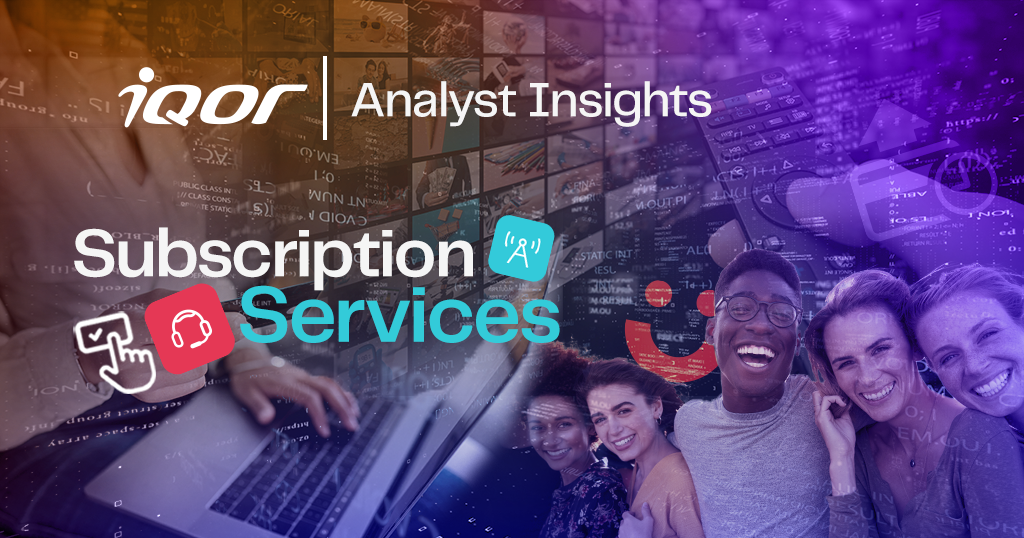

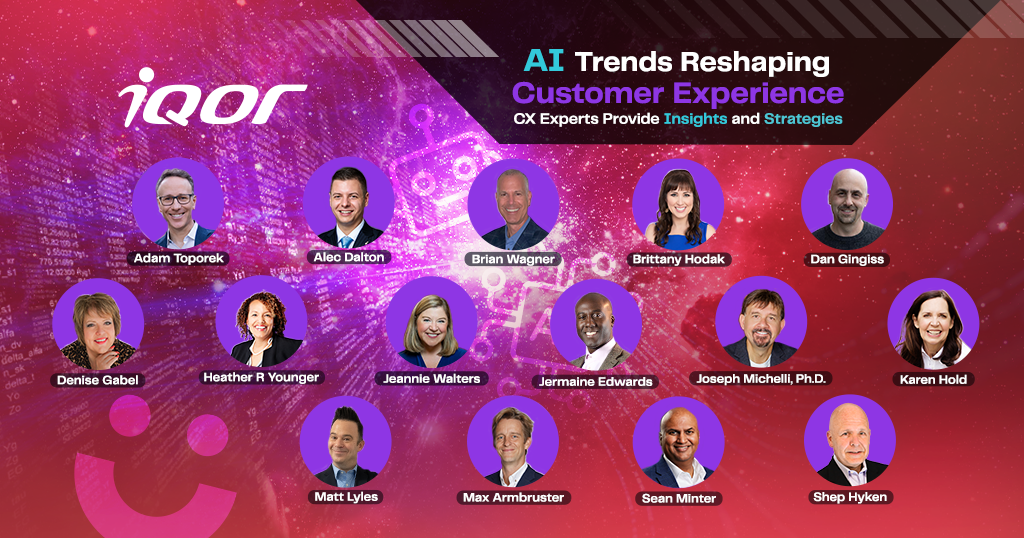




















![Symphony-[AI]-CTA](https://no-cache.hubspot.com/cta/default/2486145/interactive-151331998599.png)
